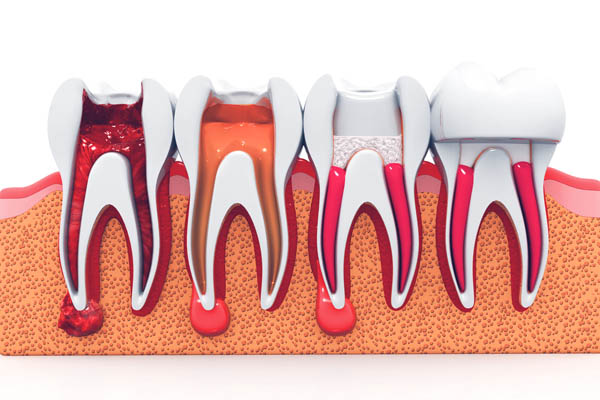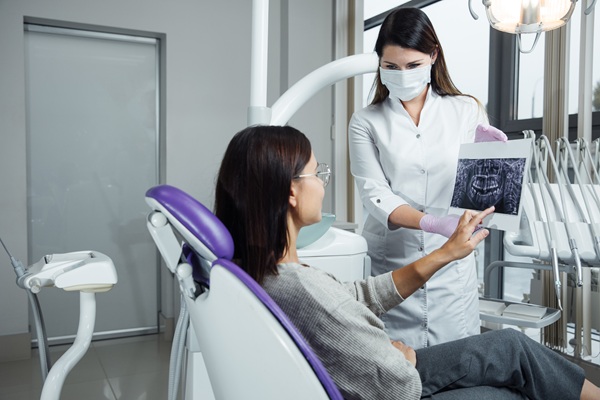Why a Root Canal Treatment is Done

Root canal treatment, also known as endodontic therapy, isn’t something most people think about daily, but it’s one of the most common treatments available. If you experience pain in your teeth and are considering treatment, then you may have heard of endodontic therapy, which can save your teeth and make sure you have good oral health throughout your life! Here’s everything you need to know about this therapy – what it is, why it’s done, how it’s done, and more!
What is a root canal?
Endodontic therapy may also be referred to as endodontic treatment, which is a procedure for cleaning out the infected canal. The infection can occur because of deep tooth decay or injury. In most cases, an experienced dentist will treat the infection with just one. But sometimes, especially if there are several teeth affected by infection, multiple may be necessary.
What are their benefits?
If you have had endodontic therapy, you know that it can be very painful, time-consuming, and expensive. However, there are some good reasons to have endodontic therapy done on one or more of your teeth.
The biggest reason to have endodontic therapy done is to save a tooth. The bacteria that cause an infection in your tooth can spread into your jawbone and sinuses. If that happens, you could lose all your teeth because they’ll be infected. Another good reason to get endodontic therapy is if you have problems biting or chewing food due to pain when biting on a specific tooth. Once you’ve had endodontic therapy, eating should feel better.
How do I know if I need one?
If you feel pain, tooth sensitivity, or sensitivity to hot or cold temperatures, your root may be compromised. Endodontic therapy may also be necessary if there are signs of infection in your gums around your teeth—swelling, redness, and tenderness.
It’s not just tooth pain that signals endodontic therapy may be needed. Many people report feelings of sensitivity in their gums, which can indicate that your teeth are dying from tooth decay and must be extracted to avoid further damage.
What happens during procedures?
The actual procedure takes about an hour, but you’ll need to take time to prepare for it and sit with your dentist for about one hour afterward. When you arrive at your appointment, you’ll have X-rays taken to get a clear view of your teeth. Then, your dentist will administer local anesthesia so that you aren’t in pain while they work on your tooth. The end of each tooth has an opening called a root canal, which leads into its center core.
Ask your dentist about root canal procedures
Your dentist will use special instruments to clean out any decay or infection inside your tooth until it becomes as clean as can be. Once everything is cleaned out, a sealant may be used to further seal off bacteria from entering or returning through these openings. This step completes an endodontic therapy treatment; once it’s done, there should be no more pain related to that tooth.
Check out what others are saying about our dental services on Yelp: Root Canal in Glendale, CA.
Recent Posts
Root canal treatment is used to save a tooth when its pulp chamber has been damaged, as the blood vessels, connective tissues, and nerves in the pulp chamber are exposed to harmful irritants like bacteria and the acids that they produce. Root canal treatment involves the dentist removing the soft tissues in the pulp to…
Thinking you need to undergo a root canal to save one of your teeth? A general dentist is the type of dental professional who typically performs this type of oral surgery often. The fact that root canal therapy is necessary to save an infected tooth makes it a good idea for patients to learn more…
Many people do not know that regular dental checkups are the most important preventive dentistry procedures against oral cancer. The dentist’s objective is to prevent and diagnose any issue as early as possible, when treatment is easier. Preventive dentistry is all about keeping the oral cavity healthy for a long time. Oral cancer screening is…
Preventive dentistry involves using the right products. This includes selecting the right toothpaste. There is a type of toothpaste for every person. If you want to enhance your preventive dentistry brushing strategy, here are some tips on choosing the right toothpaste.The attending dentist will be the judge of the most suitable toothpaste. The dentist knows…


